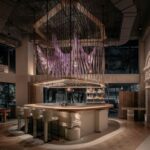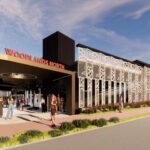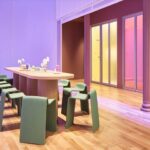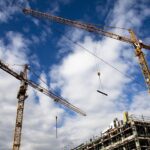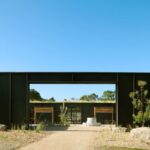New research uncovers the impact of high-rise living on young families
According to a recent study conducted at Deakin University, families with young children who live in high-rise apartments are finding it harder to socialize with other young families.
The research from Deakin’s School of Health and Social Development found that a lack of indoor and outdoor space, coupled with noise and privacy concerns, limit the interactions available to these young families.

GALLERY
The lead researcher of the study was Dr Elyse Warner, who said the research found that families wanted more opportunities for social interaction but found it difficult given the design barriers inherent in high-rise buildings with three or more levels.
She says, “Living in small-sized apartments without ready access to outdoor spaces for children to play combined with concerns over disturbing neighbours means families often don’t invite other children for playdates or host social gatherings.”
“We know that social connections are important for our health and wellbeing but what happens when the buildings don’t accommodate the needs of families, when they are designed for single people and couples without children?” Dr Warner said.
In the City of Yarra, in Melbourne, there has been an increase in high-density living. At the same time, there are increasing numbers of families with children moving into these residences. Dr Warner says, “Moving out to larger homes in the suburbs isn’t always the answer and it further isolates the families that remain.”
She adds, “Our research recommends encouraging developers to improve the allocation of social spaces within these developments as well as improve the regulation of noise.”
Dr. Warner believes that there is more that councils can do to provide spaces to build community connections. “The City of Yarra runs mothers groups and has lots of parkland in certain areas but more can be done to provide family friendly outdoor spaces in parks and recreation reserves – such as covered barbecue areas and play spaces. This would create all-weather places for families to meet and socialize outdoors which is healthy for everyone.”
The study: Surface Acquaintances: Parents’ experiences of social connectedness and social capital in Australian high-rise developments by Dr Elyse Warner and her colleague from Deakin, Dr Fiona Andrews.
Published on Science Direct.
Images via Unsplash.
Aster, a new dining destination led by chef Joshua Paris, has opened with an interior concept that draws ...
Plans for an $80 million neighbourhood shopping centre in Stirling, around 10 kilometres north of the Perth CBD, ...
International architecture studio Snøhetta has completed a new experiential retail space in New York’s SoHo neighbourhood that is ...
Australia’s residential construction pipeline softened at the end of the year, with the Australian Bureau of Statistics today ...
The Regenerative Futures Studio has been conceived as a carbon sequestering, solar powered living ecosystem that reframes how ...









